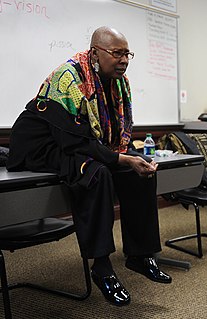A Quote by Kate DiCamillo
Everybody reading the same book at the same time pulls people together. It does start a conversation. If you're going to read 'The Miraculous Journey of Edward Tulane,' you're going to talk about heartbreak and loss and all of those things that people don't talk about as a community.
Related Quotes
For most people, what is so painful about reading is that you read something and you don't have anybody to share it with. In part what the book club opens up is that people can read a book and then have someone else to talk about it with. Then they see that a book can lead to the pleasure of conversation, that the solitary act of reading can actually be a part of the path to communion and community.
If you're not mechanically in the community with people from the community trying to talk about our party, talk about school choice, talk about SBA loans for business owners - if someone's not there, nothing is going to change. You also need to have the tone ... people believe obviously you like them. If people don't think you like them, then they're not going to vote for you.
The book [The Miraculous Journey of Edward Tulane] is about the fact that living in this world means that your heart is necessarily going to get broken. But the book also says that's okay. That's the only way to live a truly human life - with your heart getting broken - and eventually getting flooded with love.
My wonderful editor, Jackie Onassis, asked me to write a book that I wanted to write. I said, 'Look, it's not going to be scandalized. I'm not going to talk about anybody like a dog. I'm going to say the positiveness of my life, and talk about those who have contributed to the way I've been going, and that's that.'
I belong to a bowling team with black and Latino coworkers. And when we get together and we talk about politics - I'm almost quoting him - he said, we don't talk about Black Lives Matters. We talk about what matters to our families. We talk about jobs, and we talk about the fate of the country. That is America, and you can reach those people.
You're not going to have the police force representing the black and brown community, if they've spent the last 30 years busting every son and daughter and father and mother for every piddling drug offense that they've ever done, thus creating a mistrust in the community. But at the same time, you should be able to talk about abuses of power, and you should be able to talk about police brutality and what, in some cases, is as far as I'm concerned, outright murder and outright loss of justice without the police organization targeting you in the way that they have done me.
It often appears that those who talk the most about going to heaven when you die talk the least about bringing heaven to earth right now, as Jesus taught us to pray: 'Your will be done on earth as it is in heaven.' At the same time, it often appears that those who talk the most about relieving suffering now talk the least about heaven when we die.
The best books, they don’t talk about things you never thought about before. They talk about things you’d always thought about, but you didn’t think anyone else had thought about. You read them, and suddenly you’re a little bit less alone in the world. You’re part of this cosmic community of people who’ve thought about this thing, whatever it happens to be.
When I talk about how we're going to pay for education, how we're going to invest in infrastructure, how we're going to get the cost of prescription drugs down, and a lot of the other issues that people talk to me about all the time, I've made it very clear we are going where the money is. We are going to ask the wealthy and corporations to pay their fair share.

































